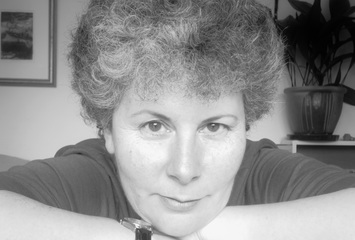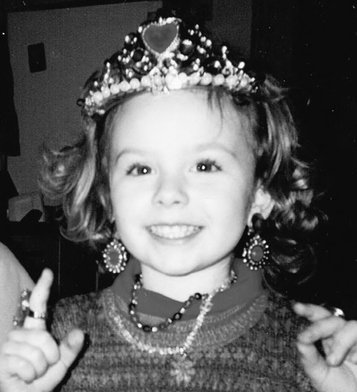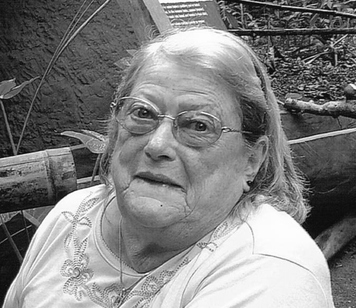About me
|
Why am I a homeopathic practitioner?
In short, because I am by nature a well-grounded pragmatist and problem solver, as well as a compassionate individual. I admire and enjoy good design and systems that work well, and homeopathy works very well indeed. And please discard the idea that it's 'just placebo' - it works too well on pre-verbal infants and animals for that to be the case. Some of the life experience I bring to my professional qualification includes work in the NHS; voluntary work as a rape crisis counsellor; living in ethnically and religiously diverse communities; some years as a brownie guider; working as a director and administrator in a successful small company; being a wife, and mother of three; and growing to realise that kindness, courtesy and respect for others are probably the most vital, yet most undervalued, of our human virtues. I am registered with the Society of Homeopaths and work to the Society's code of ethics and to the best levels of practice, as informed by my professional instructors and the National Occupational Standards for Complementary and Natural Health Care. I am committed to the process of continuing professional development and professional supervision. I love the work I do. The full story: My introduction to homeopathic medicine came in 1996 through a soon to be retired NHS GP. Desperate to do something for the sleepless, coughing bundle of mucus and phlegm that had been my second daughter since her first set of vaccinations, I chose to act on his surprising recommendation to consult with a registered homeopath. Assuming that a senior doctor knew what he was talking about, I found a registered professional homeopath and 'put my cash on the stump'. My husband and I were impressed by the results: very quickly we had a cough, catarrh and snot-free infant who could sleep properly for the first time (along with her relieved mother) and who went on to thrive. As medicine goes, it simply worked: job done - sorted. What we saw in the way the remedies worked to resolve our daughter's health problems, in exactly the way that the homeopath described they would, and when he said they would, led me to conclude that homeopathy was clearly an efficient and effective form of medicine - and definitely not placebo. How do you persuade a pre-verbal infant that what you are putting in their mouth is any different to food or anything else they might put there, and is going to make the ailing all better? Given the positive results with our child, I was puzzled as to why it was so unfamiliar and 'marginal': why weren't more doctors prescribing it or recommending it? I now see that this is because the majority of us in the UK are simply trained from birth to accept drug based medicine as the best form of general medical care, along with a very narrow view as to how illness and healing occurs, and what an effective medicine ought to be (i.e. generally a drug or surgery of some form or another). Most people are simply unaware of homeopathy’s existence and long history, its range of capabilities and its global success rate - or that of any other authentic and successful system of holistic medicine, such as acupuncture, herbalism, Ayurveda, nutritional therapy etc, etc. Following my daughter’s cure, with the support of her homeopath, my curiosity, and a basic homeopathic First Aid or Home Health Care kit to use, my family and I benefitted greatly from simply trying homeopathic treatment for various ailments, illnesses and injuries. We subsequently spent much less time troubling the NHS with things we found we could take care of ourselves (and often better) through this alternative form of treatment. As time went on, we became healthier and more resilient to things like the usual annual round of flus and colds, and mended and bounced back faster if we did succumb to things like viruses, food poisoning or physical injury. As each of my daughters and god-sons has left home I have given them their own homeopathic kit and encouraged them to use it to take care of their own health, as far as is sensible and practically possible: we all still consult with our GPs and any needed consultant, attend NHS Walk-In clinics, call NHS 111, or go to A&E if necessary. What moved me to become a practitioner myself however, was witnessing the awful effects on my mother-in-law of an ever-increasing mix of drugs prescribed in good faith, but badly managed, by her GP and her rheumatology consultant. The combined side-effects of these led to her being simply unable to eat and thus nourish herself properly; which led to her further physical deterioration; which led to her weakened gut becoming paralysed by the effects of the opiate-based painkillers being prescribed; which led to a near fatal intestinal blockage. This was deemed inoperable because of her greatly weakened state: if the blockage didn’t kill her, then surgery very likely would. Over a very grim week, with her family by her bedside, she squeaked through by force of her own will to live; but not before enduring ‘cold turkey’ on the withdrawal of all the prescription drugs, and coming close to dying. She told me afterward that it was the most frightening thing she'd ever gone through: and this was from someone who'd suffered a serious accident that left her crippled at the age of forty; suffered several bouts in intensive care units due to sepsis after post-accident surgeries left her infected; and had a young married life blighted by several miscarriages and still-birth. She had already endured more than most and taken it on the chin with little or no complaint. Having experienced by then how effective homeopathic medicine is – even if 'only' as palliative care in chronic illness - and understanding that it is neither useful nor kind to burden a body with lots of drugs, I felt that even if I was unqualified to help her and her condition at that point, I would like to be able to help someone else avoid the distress that she endured: Britain needs MUCH more homeopathy, not less! So I undertook four years of training in classical homeopathy at the award-winning British School of Homeopathy, graduating and gaining my practitioner’s licence in 2012. I have been in professional practice ever since. In 2022 I began further study and training, with the Centre for Homeopathic Education, to attain the level of Master Practitioner. This was certified in July 2023. Sandra Joyce MA (Hons), LBSH, RSHom |





